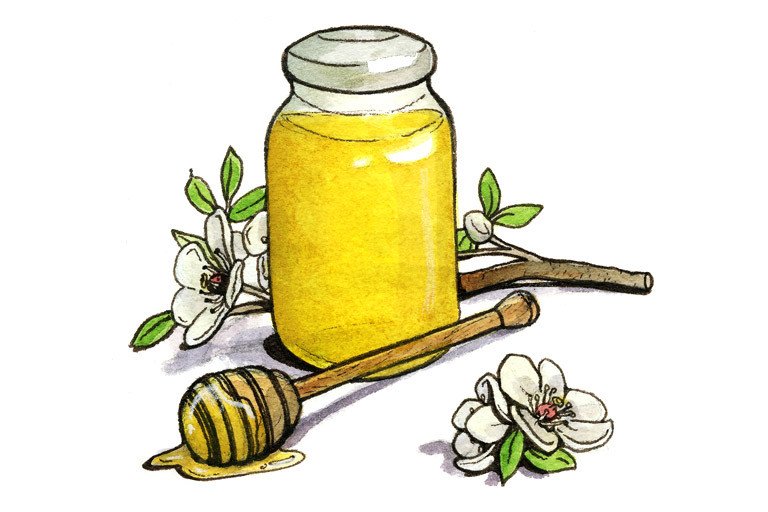
Common Names
- Tea tree honey
- Australian tea tree honey
- Active Manuka honey
- Antibacterial honey
For Patients & Caregivers
Tell your healthcare providers about any dietary supplements you’re taking, such as herbs, vitamins, minerals, and natural or home remedies. This will help them manage your care and keep you safe.
Manuka honey may help prevent infections and promote wound healing when used externally.
Manuka honey can help fight bacterial infections and has been used in dressings to promote wound healing. Methylglyoxal, a major compound in this honey, is thought to be responsible for these effects. In vitro and animal studies also suggest anti-inflammatory and anti-ulcer properties. Small studies in humans suggest its benefits against gingivitis and inflamed nasal sinuses. However, it has not been found to be effective in reducing cancer treatment-related side effects such as inflammation or sores in the mouth or throat. Larger studies are needed.
- Wound dressings
Small studies suggest the value of manuka honey in wound healing. - Antibiotics
Topical use of manuka honey was shown to be effective against bacteria. - Diabetes
Clinical trials are lacking. Excessive use of honey may increase in blood sugar levels. - Gastrointestinal tract problems
Clinical trials have not been able to confirm if manuka honey can improve beneficial bacteria in the gut. - Infections
Several case studies have described manuka honey as being effective to treat wounds that did not respond to standard treatment. - Cancer prevention/treatment
Clinical trials are lacking. - Radiation side effects
Clinical trials did not find any benefit with manuka honey for either radiation-induced oral mucositis or esophagitis, but one study found that it reduced bacterial infections. - Oral health
One small study suggests using manuka honey may help reduce buildup of plaque and gingivitis. Large-scale studies are needed.
- The sugar content in manuka honey may raise the blood glucose level in those with diabetes.
Patient Warnings:
Although manuka honey has antibacterial effects, patients should not self-medicate with honey products. Any infection should be examined by a physician or a qualified healthcare professional for proper care.
For Healthcare Professionals
Manuka honey is collected from beehives around the Manuka bush (Leptospermum scoparium), a plant indigenous to Australia and New Zealand. It has been used both as food and as a topical treatment for wounds, burns, and ulcers. Preclinical findings indicate antibacterial (1) (25) (26), anti-inflammatory (9) (27), antioxidant, and anti-ulcer (27) properties as well as effectiveness against several antibiotic-resistant bacteria (28) (29) (30).
Small clinical studies suggest potential benefits of manuka honey preparations for wound healing (38) (39), atopic dermatitis (35), gingivitis (2), oral hygiene (33), rhinosinusitis (32), corneal edema (24), and dry eye symptoms (36) (40) (41). However, randomized trials did not find it more effective than standard treatments for catheter-associated bacterial infections (6), nasal decolonization of meticillin-resistant S. aureus (MRSA) (37), venous leg ulcers (20), or eyelid surgical wounds (31). Although manuka honey has been used to increase beneficial bacteria levels and relieve gastrointestinal problems, it was not found useful in healthy subjects (7). It also did not reduce cholesterol levels in subjects with hypercholesterolemia (8).
Findings of manuka honey’s utility against cancer treatment-induced oral mucositis are conflicting (19) (22) (42). It was also not superior to supportive care in preventing radiation esophagitis, but reduced opioid use (5). Confirmatory studies are needed.
- Wound healing
- Infections
- Diabetes
- GI problems
- Cancer
- Cancer treatment side effects
- Oral health
Flavonoids present in manuka honey demonstrated anti-inflammatory, antimicrobial, and anticancer properties (13). Methylglyoxal, a phytochemical, is the major bactericidal factor and promotes free radical generation (14) (21). Manuka honey was shown to reduce motility of Pseudomonas aeruginosa, a gram negative bacterium and opportunistic pathogen, by suppressing genes associated with its flagella, thereby reducing virulence (34). It also inhibited the formation of biofilm, a complex polysaccharide structure produced by some bacteria such as Clostridium dificile, which confers antibiotic resistance (30). Anti-ulcer effects are attributed to increased gastric mucosal levels of glutathione peroxidase and superoxide dismutase and reductions of inflammatory cytokines including tumor necrosis factor (TNF-alpha), Interleukins 1-beta and 6 (27).
Manuka honey enhanced effects of antioxidants in animal studies (15) and promoted wound healing by modulating cytokine production (4) and lowering pH on wound surfaces (16). Some products list antibacterial potency by using a Unique Manuka Factor (UMF) rating, which is equal to the inhibitory potential of a phenolic solution of the same strength (7). However, clinical relevance of this measurement is unclear.
Individuals allergic to honey should avoid this product.
Manuka honey may increase blood glucose levels.
The sugar in manuka honey may raise the blood glucose level in diabetics.